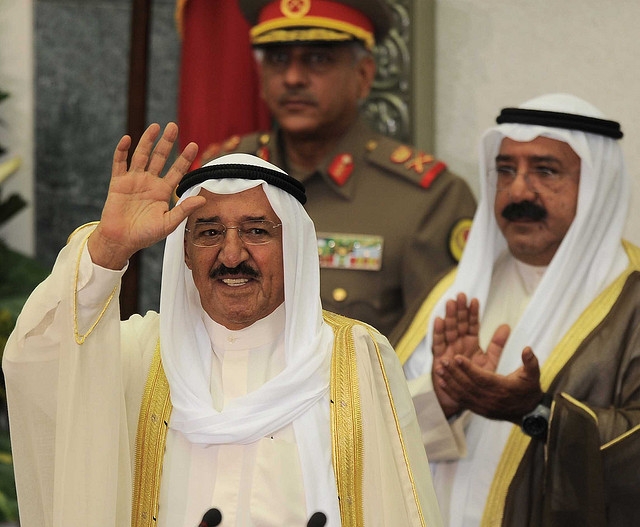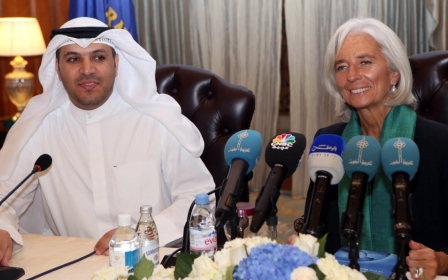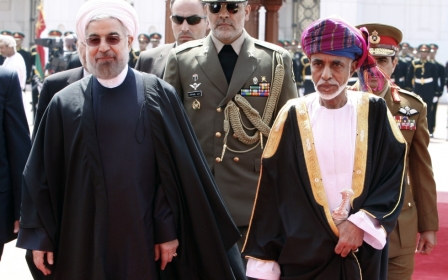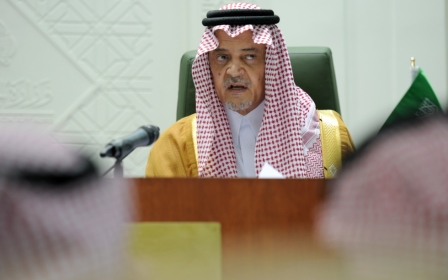Kuwaiti emir's visit to Iran suggests improved Gulf relations

Kuwait has expressed hope that a landmark visit by Emir Sheikh Sabah al-Ahmad al-Sabah to Iran next week will strengthen security, stability and peace in the Gulf.
The two day visit beginning 1 June will be Sheikh Sabah’s first to Tehran as Kuwait’s head of state and he will be taking a high level delegation, including ministers of foreign affairs, oil, finance, commerce and industry, with him, the Kuwaiti cabinet said in a statement.
The statement said Kuwait hoped the visit will “boost cooperation in various fields,” as well as strengthening “security, stability and peace in the region”. The announcement reinforces a recent thaw in relations between Shia Iran and the Sunni-ruled Gulf states despite high sectarian tensions over the conflicts in Syria and Iraq.
Iran's newly-appointed ambassador to Kuwait Ali Riza told reporters on Monday the emir's visit "will give a push to regional cooperation and consolidate ties". He said Sheikh Sabah's talks with Iranian President Hassan Rouhani will touch on the Syrian conflict and the situation in the Gulf.
Analysts have suggested the visit gives further evidence of improving relations between Iran and the Gulf States, going so far as to say it may be an opportunity for further mediation.
New MEE newsletter: Jerusalem Dispatch
Sign up to get the latest insights and analysis on Israel-Palestine, alongside Turkey Unpacked and other MEE newsletters
“The visit is a further indication the Arab Gulf States recognise there is a positive change in Iran, even it is a change in style,” said Abdulkhaleq Abdulla, professor of political science at the United Arab Emirates University. “They welcome this and seek to reinforce it hoping it will eventually lead to Iran changing the substance of their foreign policy,” he added.
“The Emir of Kuwait is a skilled mediator and I expect he is also doing some go-between work involving Tehran and Riyadh.”
Others say the visit shouldn't be overstated in its importance and that the differences between Tehran and Riyadh remain significant.
"I see this visit as part of the regular dialogue that goes on between the GCC States and Iran and certainly do not extend it any 'breakthrough' quality," Christian Koch, director of the Geneva-based Gulf Research Centre. "The gap remains too big between Iran and Saudi Arabia and therefore do not expect more than some nice statement coming out of this visit," he added.
Kuwait currently holds the rotating presidency of the Gulf Cooperation Council, which also includes Bahrain, Oman, Qatar, Saudi Arabia and United Arab Emirates.
The Iranian envoy said he expected a number of cooperation agreements in fields including aviation, tourism and sports to be signed.
Disagreements over the uprising in Bahrain and the civil war in Syria, among other issues, have negatively impacted on already frosty relations between Iran and the Gulf States, although hope for change was sparked with the election of Hassan Rouhani as Iranian president last June.
Last December Iranian Foreign Minister Mohammad Javad Zarif embarked on a tour of Kuwait, the United Arab Emirates, Oman and Qatar but it ended without a visit to Iran’s main rival Saudi Arabia.
On 13 May, however, Saudi Arabia’s Foreign Miniser Saud al-Faisal extended an invitation to his Iranian counterpart, saying he would be welcome to visit Riyadh “anytime he sees fit”.
“We are ready to receive him, we will talk with them,” Faisal said. “Our hope is that Iran becomes a part of the effort to make the region as safe as possible,” he added.
The invite sparked hopes the two countries can resolve differences that has seen them take opposing sides in fuelling the Syrian civil war and in violence affecting Iraq, Lebanon, Bahrain and Yemen. Tehran welcomed the plan and stressed the need to boost relations after years of strained ties.
Gulf Research Director Koch says the invite was not as groundbreaking as some have reported.
"The invitation by Saud al-Faisal to Zarif was not really an invitation but rather a reiteration of an invitation issued in the congratulatory message from King Abdullah to Hassan Rouhani last year," he said. "The reason I hear why the visit has not taken place is because the Iranians have insisted on seeing King Abdullah, a pre-condition the Saudis will not accept," he added.
"I also do not expect anything to happen until 20 July when the picture gets clearer about the P5+1 and Iran negotiations and whether a deal is possible or whether the interim agreement gets extended for another 6 months."
20 July is a deadline set for a full agreement to be reached between the P5+1 group of nations and Iran on their nuclear programme.
Middle East Eye delivers independent and unrivalled coverage and analysis of the Middle East, North Africa and beyond. To learn more about republishing this content and the associated fees, please fill out this form. More about MEE can be found here.




